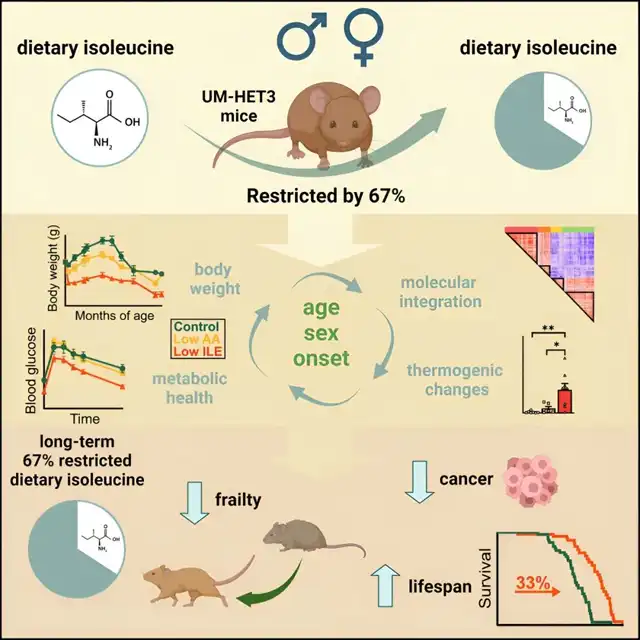Reducing the intake of this amino acid improves metabolism and extends lifespan
- Normal Liver Cells Found to Promote Cancer Metastasis to the Liver
- Nearly 80% Complete Remission: Breakthrough in ADC Anti-Tumor Treatment
- Vaccination Against Common Diseases May Prevent Dementia!
- New Alzheimer’s Disease (AD) Diagnosis and Staging Criteria
- Breakthrough in Alzheimer’s Disease: New Nasal Spray Halts Cognitive Decline by Targeting Toxic Protein
- Can the Tap Water at the Paris Olympics be Drunk Directly?
Reducing the intake of this amino acid improves metabolism and extends lifespan
- Should China be held legally responsible for the US’s $18 trillion COVID losses?
- CT Radiation Exposure Linked to Blood Cancer in Children and Adolescents
- FDA has mandated a top-level black box warning for all marketed CAR-T therapies
- Can people with high blood pressure eat peanuts?
- What is the difference between dopamine and dobutamine?
- How long can the patient live after heart stent surgery?
Reducing the intake of this amino acid improves metabolism and extends lifespan
Dietary interventions such as caloric restriction (CR) have been proven to extend the lifespan of various species, but adhering to a calorie-restricted diet can be challenging. Therefore, it is crucial to develop eating patterns that simulate the benefits of calorie restriction without reducing energy intake.
Previous research has indicated that protein restriction (PR), especially isoleucine restriction (IleR), can improve various markers of metabolic health, reduce obesity, and enhance insulin sensitivity. However, the mechanisms mediating these beneficial effects are currently unclear.
On November 7, 2023, the team led by Dudley W. Lamming from the University of Wisconsin-Madison published a study titled “Dietary restriction of isoleucine increases healthspan and lifespan of genetically heterogeneous mice” in the journal Cell Metabolism.
The research found that isoleucine restriction (IleR) improves the metabolic health of both young and old mice, promoting leanness and blood sugar control, ultimately extending their lifespan and healthspan.

Researchers initially divided male and female mice, aged 9 weeks, into three groups: a normal amino acid diet, a low amino acid diet, and a low isoleucine diet, with the total calorie intake being equal for all three diets. The results showed that both male and female mice in the normal diet and low amino acid diet groups gained weight, while the initial weight of mice in the low isoleucine diet group decreased significantly, with female mouse weight gradually recovering.
After 3 weeks, the mice underwent glucose tolerance tests, revealing improved glucose tolerance in mice fed a low isoleucine diet. Overall, these results suggest that restricting isoleucine in the diet can reduce mouse weight and improve blood sugar control, and is more effective in promoting metabolic health than a low amino acid diet.
Subsequently, researchers used the recently developed mouse frailty index to study the impact of diet, age, and gender on frailty. As expected, in male and female mice on a normal amino acid diet, frailty increased with age. At multiple time points, the frailty index in male mice fed a low amino acid and low isoleucine diet significantly decreased. Consistent with the frailty index, starting from 6 months of age, a low isoleucine diet significantly increased the lifespan of male mice, with a 33% increase in median lifespan compared to the control group mice. Surprisingly, although a low amino acid diet reduced frailty, it did not affect the lifespan of male mice.
In summary, this study demonstrates that restricting isoleucine in mice from the age of 6 months (roughly equivalent to humans in their 30s) can extend both healthspan and lifespan, with these benefits present in both sexes and particularly pronounced in males. This suggests that isoleucine restriction (IleR) or drugs simulating this effect may serve as a novel strategy for anti-aging and extending healthy lifespan.

Link to the paper: https://doi.org/10.1016/j.cmet.2023.10.005
Reducing the intake of this amino acid improves metabolism and extends lifespan
(source:internet, reference only)
Disclaimer of medicaltrend.org
Important Note: The information provided is for informational purposes only and should not be considered as medical advice.



